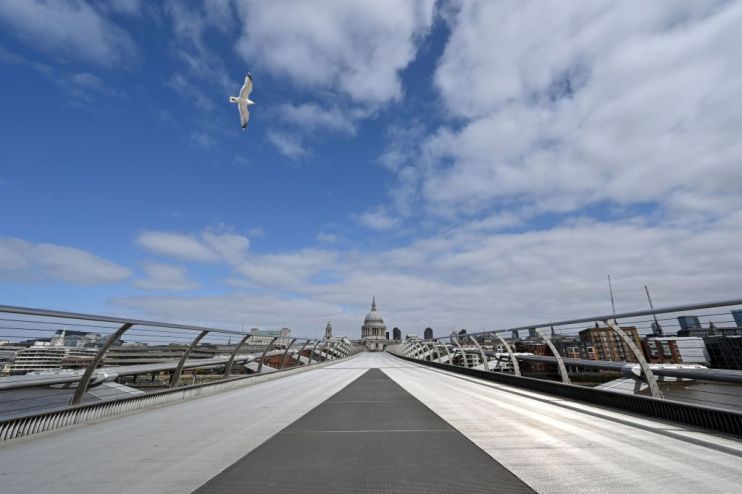FTSE 100 rises but US markets fall as jobless claims grow

The FTSE 100 clung on to its gains but US markets fell as investors weighed rising American joblessness against the prospect of more economic stimulus.
London’s main stock index was 0.2 per cent higher in afternoon trading at 6.218 points. The FTSE 250 was up 0.1 per cent.
Read more: Unilever beats sales forecasts as it retains India tea arm
In the US, the S&P 500 index was down 0.2 per cent after choppy early trading. The Dow Jones was 0.5 per cent lower and the Nasdaq had slipped 0.2 cent.
In Europe, Germany’s Dax was up 0.1 per cent. But France’s CAC fell into the red with a 0.1 per cent drop. The pan-European Stoxx 600 was 0.1 per cent.
European markets had spent much of the day solidly in the green. But investors were shaken by US data that showed new jobless claims climbed last week for the first time since March.
Slightly more than 1.4m Americans made a new jobless claim last week, up 109,000 from the week before.
The worrying rise in unemployment signalled that coronavirus could be derailing the US economy’s recovery. The US is nearing 4m cases and a number of states are consistently setting new records.
Despite some nervousness setting in, the FTSE 100 hung on to its gains. Unilever boosted the index after it beat expectations of a sales drop. Home and food sales offset declines elsewhere, the consumer goods giant said.
Its shares soared eight per cent today. Russ Mould, investment director at AJ Bell, said: “Business resilience is a much sought-after attribute in the current economic climate and Unilever has certainly got the right ingredients.”
“Its performance was considerably better than expected,” he added.
Investors are hoping that the US government and congress can thrash out a more than $1 trillion (£790bn) stimulus package in the next two weeks.
Yesterday, reports said Republicans were close to agreeing among themselves an offer to Democrats in the negotiations.
Pound slips as FTSE 100 rises
Michael Hewson, chief market analyst at CMC Markets, said: “Equity investors, while remaining cautious about the outlook, still appear to be happy buying dips.”
He said indices like the FTSE 100 “continue to trade in a manner that is two steps forward and one back, slowly ratcheting higher, with sharp drops in between”.
On the currency markets the euro continued its stellar rise in the wake of the agreement over the EU’s €750bn (£680bn) coronavirus recovery fund.
It was trading at around $1.16, near its highest level since 2018.
The pound was roughly flat against the dollar, helped by a weaker greenback. Sterling has been weighed down by stalling Brexit talks in recent days.
Connor Campbell, financial analyst at trading site Spreadex, said: “Sterling’s issues appear to stem from both the lack of progress in the UK-EU Brexit talks, and the rapidly shrinking window to secure a deal.”
Yet he added that “a record decline in factory output between May and July” was not helping. The CBI’s industrial trends survey today showed the sector remained mired in a deep downturn.
Emiel van den Heiligenberg, head of asset allocation at Legal and General Investment Management, said he was skeptical about stock markets’ recent rally.
The FTSE 100 is up around 25 per cent since its March nadir. London’s index has underperformed, however. The US’s S&P 500 is roughly 46 per cent higher.
“Markets are exuding overconfidence on the outlook for the economy, the path of COVID-19 and the development of a vaccine,” van den Heiligenberg said.
Read more: Daily Mail owner DMGT reports plunge in profit as coronavirus hammers publishing sector
“Over the next six months, we expect to see mounting evidence of ‘economic scarring’, due to corporate defaults, layoffs and cuts to capital expenditure.”
Yet he said: “We remain positive on tech stocks, as they are likely to constitute a winning post-pandemic sector.”